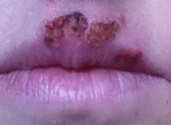Going to the doctors to test for a severe allergy is likely to lead to allergy medicine being administered. But what if this prognosis and treatment is misdiagnosed? Find out more, here…
Having a severe allergic reaction is terrifying, so seeking medical help is naturally the first port of call. That said, if only mild symptoms occur, it can be uncertain what the cause is, even for the doctor! Because of this, allergy misdiagnosis is more common than you may think.
Have you experienced misdiagnosis of a medical condition, like an allergy, and are unsure what to do now? For some more information on the causes and consequences of allergy misdiagnosis, and some guidance as to when to seek legal advice, read on…

What Causes Allergy Misdiagnosis?
There isn’t an extensive list of allergies which are more commonly misdiagnosed than others. However, a few important ones include penicillin and food allergies, specifically peanuts.
There are a number of reasons why allergies may be misdiagnosed. Some of these include lapses in judgement, for example:
- Failure to screen for a particular condition;
- Misinterpretation of results;
- Failure to get all the symptom information from the patient, or not investigating said symptoms;
- Or not referring the patient to a specialist.
That said, it’s not just medical negligence that could cause misdiagnosis. Here are a few of the top causes for misdiagnosis, which you may have experienced yourself…
Cold Weather
Anyone with asthma will tell you that their symptoms are most prevalent during the winter. The cold weather can really cause breathing difficulties, especially in severe cases.
The same can be said for allergies. This is because cold weather can increase congestion, which exacerbates nasal irritation. Due to this, the symptoms of allergies can become more prevalent during the winter months.
In a number of cases, these exacerbated allergy symptoms can mimic those of the common cold or flu. Even experts in the field can get confused between the two.

Self-Diagnosis
Self-diagnosis is a big cause of misdiagnosis because, as we’ve seen, symptoms of allergic reactions can be easily confused as other ailments. In many cases, those who believe they have an allergy actually have sinusitis. This is a common side effect after recovering from a common cold, and symptoms include:
- Congestion, and a blocked nose.
- A sinus headache.
- High temperature.
- Thick mucus.
- Pain and swelling in the face, including the forehead, cheeks, and eyes.
As you can see, this certainly mimics the general symptoms of an allergy. However, allergic symptoms also include problems like irritated and itchy eyes and skin, wheezing, insomnia, and trouble concentrating. So, it’s important that you head to your local GP if your symptoms are confusing you.
Discrepancies in Food Allergen Panel Testing
These days, nearly one in 13 children are diagnosed with a food allergy, and these figures have sky-rocketed over the last decade. This has caused many people to demand allergy testing, but it’s advised that these are practiced with precaution. In fact, almost 90 percent of people who took the test were later able to reintroduce at least one food item they were said to be “allergic” to into their diet.
Have Grown Out of It
In many cases, a mistake can be experienced without an actual misdiagnosis, per se. In fact, the diagnosis may have been perfectly correct, back when they were a child. However, now, the allergy has either been grown out of, or developed into.
According to studies, this occurs with around one in 10 people who have a penicillin allergy on their medical records. In these cases, it’s either been misdiagnosed, or they’ve grown out of it later. Whatever the case, this could explain a number of cases of potential misdiagnosis.

What Are the Potential Consequences of Medical Misdiagnosis?
Misdiagnosis – whether it be a positive or negative misdiagnosis – can have major effects on the victim’s life. Not only that, but a fatal misdiagnosis could also detrimentally affect the reputation and conscience of the person who provides it. Some examples of where this could really have an affect include:
Positive Misdiagnosis Consequences
A positive misdiagnosis is the act of diagnosing someone with an allergy that they don’t have. For example, as we have already touched upon, many individuals are misdiagnosed with allergies to penicillin when they don’t have them. So why is this a problem?
Well, these days, penicillin is used to combat bacteria in the body, and can be vital in curing life-threatening illnesses, such as sepsis. Misdiagnosing something like penicillin can really impact someone’s ability to withstand a disease that may hit them later in life.
What’s more, if someone is misdiagnosed with a food allergy, this could also cause problems. For example, anxiety due to a preconceived allergy could really alter the quality of life of the individual. It could even cause them to refuse certain social events or trips if they fear they will encounter an allergic reaction to food.
In addition, the victim’s diet could also be compromised from this misdiagnosis. In fact, misdiagnosis is actually known as one of the biggest risk factors for nutritional deficiencies. So, it’s important that people can get a whole range of food in their diet, if they have the ability to.
Negative Misdiagnosis Consequences
On the other end of the spectrum, and potentially more life-threatening than positive misdiagnosis, is misdiagnosing someone who actually does have an allergy. This is a little more self-explanatory as, if someone who has a severe allergy is told they don’t, they may suffer from anaphylaxis when they later consumer this product.
Professional Repercussions
In many cases, medical negligence for allergies will not be pursued. That said, if it really ends up having an adverse effect, like in the examples above, then it is perfectly possible to seek justice.
There have been numerous cases where doctors have been sued for negligence. However, this has to have caused major damage to the patient, due to an aggressive treatment or potential injury or death caused by this misdiagnosis.
What to do if You’ve Been Misdiagnosed…
There are a number of avenues you can take if you feel as though you’ve been misdiagnosed, some more extreme than others. Some steps to follow include:
- Seek help from another physician.
- Come prepared to this appointment, with a list of all your symptoms and previous medical history, so nothing is missed.
- Bring someone with you who can by stand, and make sure you aren’t dismissed.
- Make sure to ask questions when you’re with a medical professional.
Alternatively, if you didn’t spot the mistake straight away and ended up enduring the wrong treatment, this may have caused more serious consequences. This is where the tables turn, and seeking legal advice is your next step.

Have you Been Misdiagnosed?
So, there you have it; the ins-and-outs of allergy misdiagnosis, the causes and effects, and some tips for what to do next.
Have you had experience with a misdiagnosis of an allergy? I’d love to hear your stories in the comments below. Let’s share experiences, so we can make sure the same things don’t happen twice!
[This is a sponsored post]












Hi Ruth, just thinking about this line, which rather surprises me: “In fact, almost 90 percent of people who took the test were later able to reintroduce at least one food item they were said to be “allergic” to into their diet.” Do you mean IgE – genuine allergy testing – or IgG/food intolerance here pls? Do you have a reference please as that’s the first time I’ve ever heard of an IgE reversing…? I’d love to think it was possible
Hi Micki, do they mean the person has grown out of the allergy? or perhaps what they mean is that the tests often come up with loads of false positives. If I had blindly followed my allergy test results I’d be avoiding coconut, which tests show I’m allergic to. But I’m not allergic to it at all. So it’s all very confusing isn’t it. I think they do mean IgE here. I’ll clarifiy with the author for you. I didn’t write this on myself!
Micki, thanks so much again for your comment. I spoke to the author and this is the explanation they gave. “I couldn’t find the exact source that I used, but I found something which reiterates the same sentiment, here: https://healthydebate.ca/2017/01/topic/igg-tests-science where it says “One review of 125 kids found that 80% to 100% of the foods that IgE tests flagged could be safely reintroduced into their diets.”
Hope that helps. I know I grew out of my egg allergy and can eat them now, in moderation. It’s a fascinating subject. I believe kids also now go on to reintroduce the foods they were allergic to when tests show that they are less allergic, they do this with the doctor, under controlled conditions of course.
Hmm, I’d have to wonder why the IgG goes up as the IgE comes down? I don’t believe we just create IgG as a general antibody to all food. IgG is usually a sign – even if the person is asymptomatic – that there is an immune response to that food. It may mean that the IgE acute reaction has gone but a more chronic lower-grade sensitivity remains, which could make the person vulnerable in later years possibly – check out some of the comments below that article which also suggests that happens for some people, Or it could be part of an immune response which – in combination with others – can tip the balance and bring on symptoms if a person has an allergen load that becomes too high – eg. they’re consuming too much of that food, too many of the IgG ones in combination or even are stressed, suppressing their ability to cope as normal with those foods. Just musing anyway! It is certainly a minefield. I do offer IgG testing via Cyrex, which has a very good pedigree but I tend nowadays to do the FIT test which measures a complement release reaction and not just IgG so you are more likely to get to the real culprits and not get a huge list of foods to avoid! Nothing exists yet that is 100% perfect in this field as we simply don’t yet know all the mechanisms involved, but I try to keep the best options available at any given time!
thought my story might help others so here goes. Seven years ago I was in a real state with pains in multiple joints, light headed at best or full blown vertigo attacks at 30 seconds notice, loss of hearing, seizing up of my neck with pains going up my neck through to to the back of my eyes etc.etc. Having been told by consultants that we don’t know what causes it I went into full research mode and read research which indicated that food allergy or insulin resistance could be the root cause of some of the symptoms. I then went into full hypothesis testing mode. So I am back to good health (as long as I steer away from something that is literally in every food stuff either manufactured or embedded through animal feed
thought my story might help others so here goes. Seven years ago I was in a real state with pains in multiple joints, light headed at best or full blown vertigo attacks at 30 seconds notice, loss of hearing, seizing up of my neck with pains going up my neck through to to the back of my eyes etc.etc. Having been told by consultants that we don’t know what causes it I went into full research mode and read research which indicated that food allergy or insulin resistance could be the root cause of some of the symptoms. I then went into full hypothesis testing mode. So I am back to good health (as long as I steer away from something that is literally in every food stuff either manufactured or embedded through animal feed) which is soya. I can consume all dairy, meat, eggs as long the diet on the animal has not to included any soya. Pasture for life farms have become my lifeline, using my expanded freezer capacity to store, milk, cream, meat, wild fish etc. I am now back to full health as long as I avoid soya at all costs. This is an incredibly difficult foodstuff to isolate because of its pervasive use in everything, much of it unlabelled. So I hop my story can help others.
Gosh that is incredible, that even soya fed to animal can affect you. I am allergic to soya so I also avoid it but I’ve never gone to these lengths. Perhaps I should be more careful! I’m currently going through topical steroid withdrawal so it’s hard to know what’s going on with my skin. Once the TSW flares have died down and I’m just left with eczema I can begin unpicking what are my real triggers properly. Thanks so much for sharing. It sounded like an awful journey. So glad you got to the bottom of it.